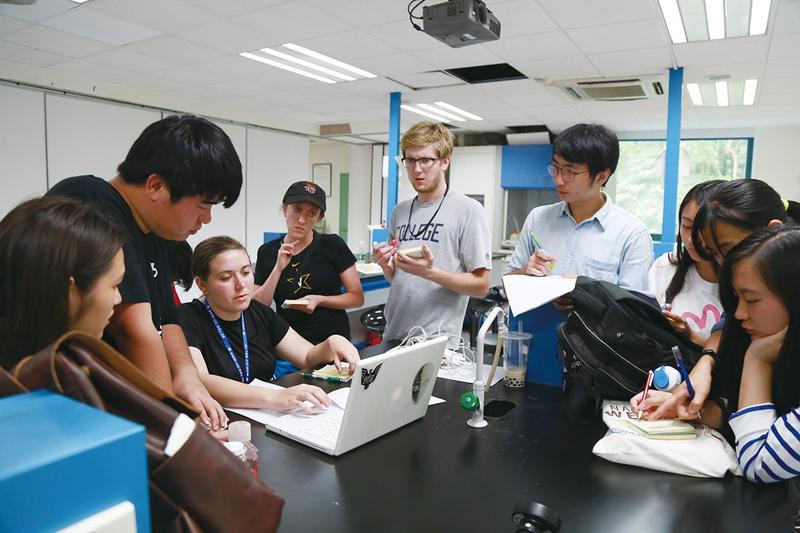Always up for a challenge


The latecomers — the Chinese University of Hong Kong, the Hong Kong University of Science and Technology and the Open University of Hong Kong — had no such problems. They struck deals with the municipal governments in Shenzhen, Guangzhou and Zhaoqing that included free land with a furnished campus and additional subsidies.
Such disparity in resources did obstruct the college's development, Tang said.
UIC ranked fifth among the six joint ventures between mainland and overseas institutions in 2020, according to Shanghai Ranking. CUHK's Shenzhen branch, which was set up nine years later than UIC, led the pack.
Tang's qualities that are closely linked to his profession — persistence and attention to detail — helped see him through the challenge: Tang has been running a magazine he co-started a decade ago to promote math; he is quite thorough with the contents of his travel logs that would be published on the school's social-media platform, such as the photos and their captions.
Just two or three months after taking the post, Tang proposed to the Zhuhai Municipal Committee of the Communist Party of China and the Zhuhai government, that the local government grant more land to the school. A year later, it was allocated 550 more mu to develop another campus.
The second campus, which is expected to open in five years, will focus on science and engineering subjects and postgraduate lessons, highlighting Tang's ambition to revitalize the school with more efforts in scientific research.





































